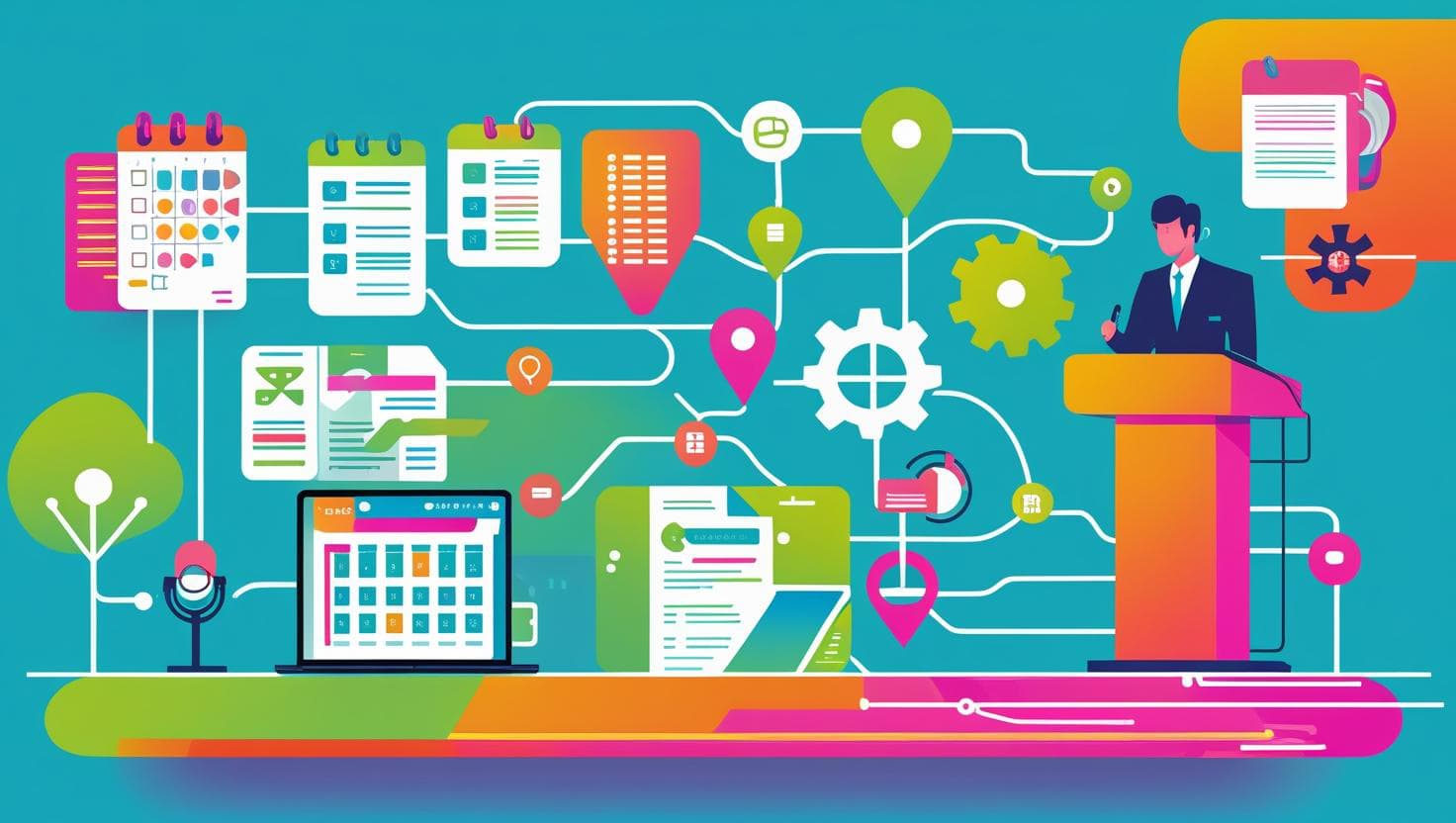Planning a conference can feel like juggling dozens of moving parts at once. From booking the right venue to coordinating speakers, managing technology, and keeping attendees engaged, it’s easy for even experienced organizers to get overwhelmed.
When details slip through the cracks, the consequences can range from awkward delays and frustrated attendees to budget overruns and lost opportunities for networking and business deals.
This article explores the most common pitfalls in conference planning and offers practical strategies to avoid them, helping organizers create seamless, productive, and memorable events.
Start with Clear Objectives
One of the first mistakes planners make is jumping straight into logistics without defining the conference’s purpose. Are you aiming to educate, network, launch a product, or secure partnerships?
Clear objectives not only help shape the agenda but also guide decisions about the venue, speakers, and even the technology you’ll need.
For example, a conference focused on networking may require multiple breakout rooms and interactive sessions, while an educational seminar may prioritize expert speakers and workshop spaces.
Without these goals, resources can be wasted, and attendees may leave feeling the event lacked focus.
Budget Wisely
Budget mismanagement is another common issue. 56% of event planners cite budget constraints as their top challenge.
To stay on track:
- Create a detailed budget that includes everything from venue rental and AV equipment to catering, staffing, and marketing.
- Allocate at least 10–15% of the budget for unexpected costs.
- Monitor spending regularly to avoid unpleasant surprises.
Smart budgeting ensures your event meets expectations without compromising quality or leaving you with financial stress afterward.
Choose the Right Venue
Venue selection is more than picking a fancy hotel or conference center. The wrong space can lead to logistical headaches, poor attendee flow, and accessibility issues. When choosing a venue, consider:
- Capacity: Will it comfortably hold all attendees?
- Location: Is it easy to reach via public transport or major roads?
- Amenities: Does it have reliable Wi-Fi, AV equipment, and breakout areas?
- Accessibility: Are facilities suitable for people with disabilities?
Even small oversights, like insufficient seating or poor acoustics, can have a big impact on attendee satisfaction.
Streamline Registration
The check-in process sets the tone for the entire event. Long lines or confusing procedures can frustrate attendees before the event even begins.
Best practices include:
- Implementing online registration and ticketing systems.
- Offering quick badge printing or digital check-in.
- Training staff to manage high volumes of attendees efficiently.
A smooth registration experience leaves attendees ready to engage and network from the start.
Keep Attendees Engaged
Conferences are valuable not just for information sharing, but for networking and collaboration. Failing to facilitate engagement can result in missed opportunities.
Consider interactive sessions, Q&A panels, discussion forums, and networking breaks.
Tools like live polling apps or dedicated event apps can help attendees participate actively, ensuring sessions are more than just one-way presentations. Engaged attendees are more likely to remember your event positively and carry forward ideas and connections.
Plan for Technology
From presentations to live streaming, technology plays a central role in modern conferences. Overlooking these needs can lead to disruptions, frustrated speakers, and disappointed attendees. Ensure:
- Reliable Wi-Fi and backup internet options.
- High-quality AV equipment.
- Technical support on standby for troubleshooting.
Testing all systems before the event is important. Small glitches can feel enormous when hundreds of participants are affected.
Communicate Clearly
Clear communication with speakers, sponsors, staff, and attendees is essential. Share schedules, expectations, and updates in advance, and provide a central platform like an event app or website for ongoing announcements.
Consistent communication reduces confusion, helps everyone plan ahead, and enhances overall satisfaction.
Evaluate Post-Event
Once the conference ends, the work isn’t done. Post-event evaluation helps identify what went well and what needs improvement. Collect feedback from attendees, speakers, and sponsors through surveys or interviews.
Analyze metrics such as session attendance, engagement levels, and social media mentions to measure success.
Even small insights can improve future events, from choosing the right venue to optimizing schedules and technology setups.
Conclusion
Clear objectives, realistic budgets, the right venue, smooth registration, engaging content, robust technology, strong communication, and post-event evaluation are how you avoid common pitfalls.
By anticipating challenges and planning thoughtfully, event organizers can create conferences that are productive, enjoyable, and memorable, turning every session into an opportunity for meaningful connections and impactful business outcomes.






